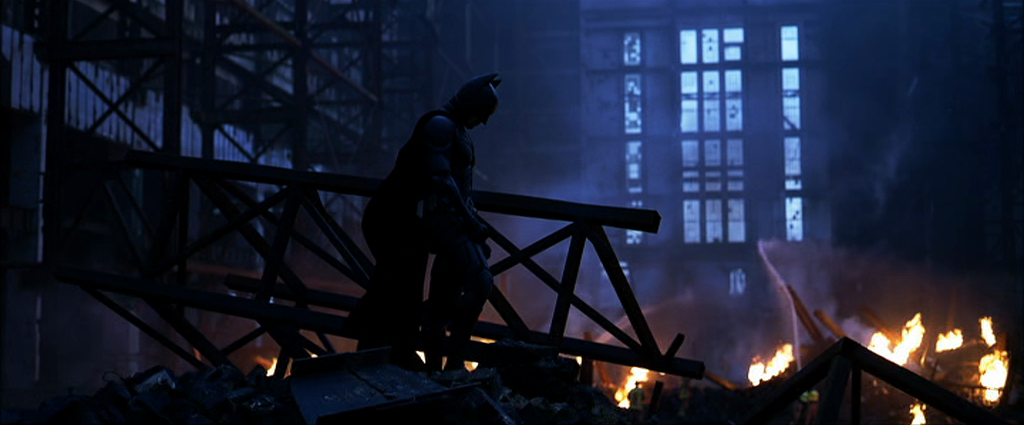The Dark Knight

Originally published on 04/03/22 on Letterboxd
Easily one of the most overtly fascistic blockbusters to come out of Hollywood. Doesn’t help that its politics are putrid, lending support to the Patriot Act in all but the name in a thinly-veiled metaphor for “extremism”. Its nature as conservative agitprop extends to its dialogue, with every line being uttered as if the actors were reading it from holy scripture whilst being held at gunpoint.
Simultaneously, the progression from the relative pragmatism of Batman Begins to whatever monstrous being this is manifests itself in the form of its spatial characteristics, situating itself in Literally Chicago in an attempt to drive home its pro-cop messaging by trying to replicate an unpleasant reality-resultantly, this is a work entirely absent of any of the wonder inherent in a man dressed as a bat, who happens to be funded by a never-ending revenue stream.
In an instance of grand irony, this is one of the many turning points throughout the film where its eagerness to hammer home a specific right-wing viewpoint lends itself to less sycophantic, if not exactly leftist, interpretations—after all, the police are largely ineffective in doing anything but reproducing the very crime they claim to fight.
What struck me as particularly perplexing this time around is the sense of nigh-religious faith that permeates this. Nolan has an unerring sense of faith, but it isn’t expressed via channels of agitprop. Instead, there appears to be a clear belief in the principles of martyrdom as an exacting force, capable of extending forgiveness through the mere act of going through with it. This may be a work indubitably in support of policing as a violent, oppressive institution, but it accepts that there exists a dialectical relationship between this institution and those that oppose it-contrary to conventional notions of fascism, Nolan seems to accept that crime is as fundamental to the functioning of the carceral state as policing. Simultaneously, he also believes in some miraculous intervention by an individual that disrupts this balance between the two social agencies, creating new precedents for the maintenance of social order. Essentially: change for the sake of stagnancy.
Contradictory? Obviously. Uninteresting? Not at all, which is the highest praise I can give to an otherwise despicable work that, somewhat hypocritically, I grudgingly admire for its commitment to ideological incoherence supported by the skeleton of a Heat pastiche.
